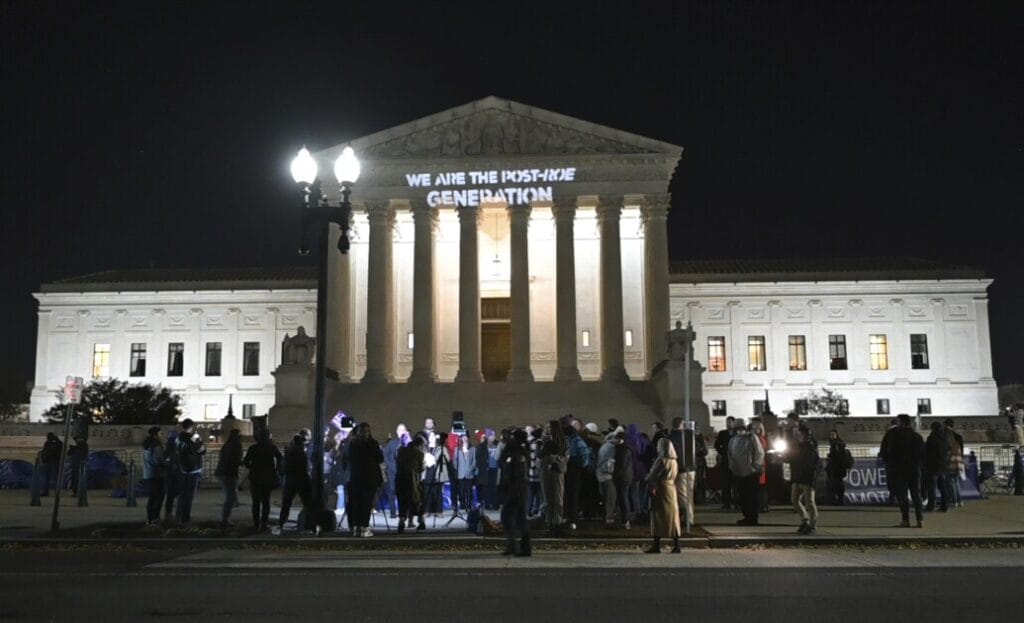A federal appeals court has upheld an Indiana school district’s decision to limit the scope of flyers that a “Students for Life” club could post on school walls to only time and place details for meetings, excluding broader anti-abortion messaging.
A unanimous three-judge panel of the U.S. Court of Appeals for the 7th Circuit, in Chicago, rejected a claim on behalf of the club’s founder, a 9th grader at Noblesville High School, that the school’s decision violated her First Amendment free speech rights.
“This is not a case about tolerating private student speech,” the court said in its Aug. 14 decision in E.D. v. Noblesville School District. “Instead, it is a case about whether the school must lend its resources (here, literally its walls)—and, by extension, its authority—to disseminate student messages.”
The school had a neutral restriction on the type of information that student clubs could include on flyers posted on school walls, such as the name of the club and the date, time, and location of meetings. The rule applied to roughly 70 student clubs, which included Young Republicans, Young Democrats, a Gender and Sexuality Alliance, and a Black Student Union.
That policy passed muster under a key U.S. Supreme Court decision that allows school administrators to regulate messages that might be interpreted as coming from the school, the 7th Circuit panel said.
“Excluding political content, in particular, serves the pedagogical goal of maintaining neutrality on matters of political controversy,” said Judge Nancy L. Maldonado, a President Joe Biden appointee.
Flyer templates provided by a national anti-abortion group
The case involves a student identified in court papers as E.D., who entered Noblesville High in 2021 with a goal of forming a student chapter of Students for Life of America, a national anti-abortion group.
The student raised money, found a faculty adviser, and got the high school principal to approve the club. E.D. emailed the assistant principal two templates for flyers offered by the national group, which said, “Pro-life students, it’s time to meet up!” and included stock photos of young people holding signs that said “I am the pro-life generation” and “Defund Planned Parenthood.”
The assistant principal replied that those flyers would violate the school’s guidelines. Club members could discuss those statements at meetings, but the flyers could not be posted on school walls, she said.
The student and her mother later met with the dean of students to raise the issue again. That meeting prompted the principal and assistant principal to conclude E.D. was circumventing the earlier decision, and that her mother was improperly involved in a student-run club.
The principal suspended the Students for Life club, but reinstated it a few months later at the start of the second semester. That action led to a separate claim in E.D.’s lawsuit, which the 7th Circuit rejected.
The principal did not base the suspension on the club’s views, the court said, but on his conclusion that E.D. had sought to bypass the assistant principal’s decision and because the involvement of her mother was inappropriate.
Flyers have ‘a literal stamp of approval’ of a school official
As for the flyers, the 7th Circuit analyzed the case under the Supreme Court’s 1988 decision in Hazelwood School District v. Kuhlmeier. In that case, the court upheld a school administrator’s decision to remove stories on teen pregnancy and divorce from a high school newspaper, ruling that school officials could exercise editorial control over student speech in school-sponsored expressive activities as long as their actions were “related to reasonable pedagogical concerns.”
Maldonado said because E.D. sought to display her flyers on school walls and bulletin boards where other school-sponsored messages appear, “they could reasonably be perceived as bearing the school’s imprimatur.”
Every student flyer at the school “must bear a faculty member’s initials for approval—a literal stamp of the school’s authority,” the judge said.
The school’s rule barring political messages was related to reasonable pedagogical concerns, she said.
“Flyers promoting a polarizing political slogan (‘Defund Planned Parenthood’) and bearing an administrator’s initials alongside school-sponsored postings could mislead observers into thinking the school endorses that view,” Maldonado said.
2025-08-15 21:46:33
Source link

